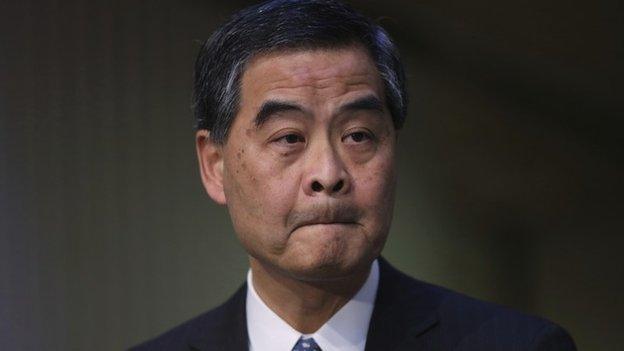Carrie Lam: Hong Kong's new leader faces an uphill battle
- Published
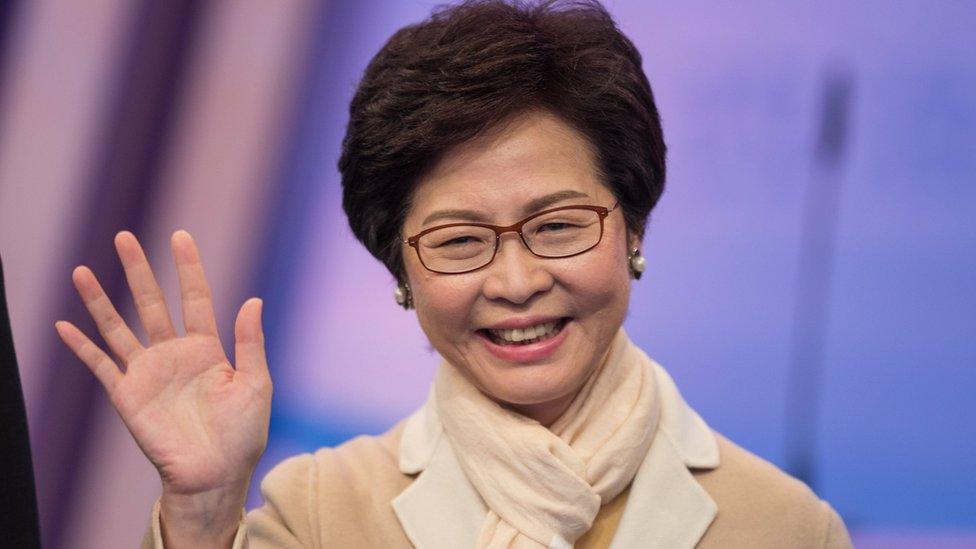
Mrs Lam faces a difficult battle with Hong Kong's pro-democracy camp
Hong Kong's new leader Carrie Lam has almost four decades of public service behind her.
For five years she served as deputy to the man she is now replacing, the unpopular CY Leung. She has been praised as a strong administrator and pragmatic lawmaker, and is undoubtedly Beijing's choice for the role.
But she is widely disliked by the pro-democracy camp for her stance on political reform.
When mass rallies erupted in 2014, it was Mrs Lam who defended Beijing's unpopular proposal - to allow Hong Kong people to choose their leader but only from pre-approved candidates - to crowds of protesters demanding full democracy.
Many have also accused her of being out of touch with voters after gaffes, including a bizarre search for toilet paper and a failure to use a transport swipe card.
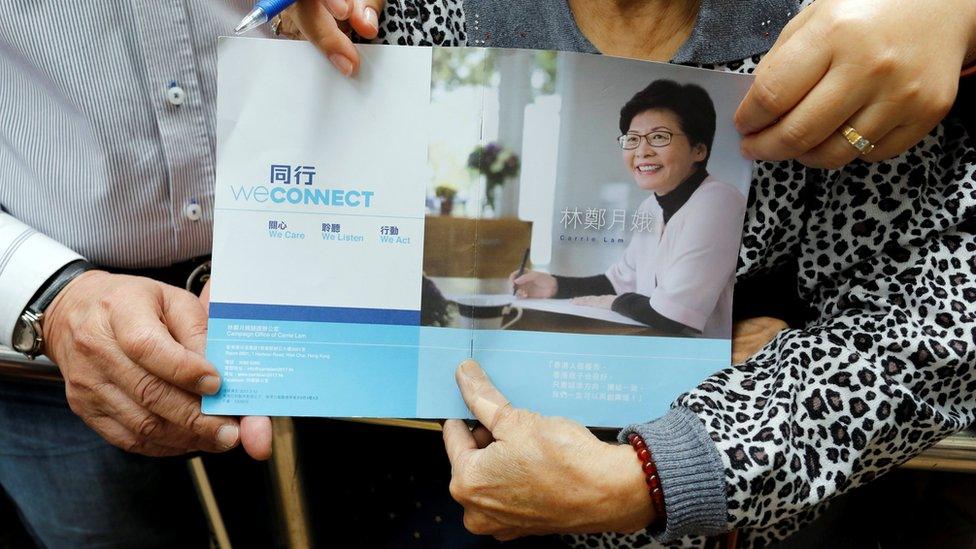
Reports suggested Beijing lobbied for Mrs Lam
Mrs Lam, 59, who comes form a working-class background, joined the civil service in 1980 after graduating from the University of Hong Kong.
After spells dealing with housing and social welfare, she served as the city's secretary for development before moving into Hong Kong's number two role, chief secretary, in 2012.
She was not the popular candidate to replace Mr Leung - rival John Tsang scored far better in opinion polls - but was favoured by those who decide who leads the territory.
There were multiple reports of Beijing lobbying for her and, a few days before the polls, Hong Kong's richest man, Li Ka-shing, made comments seen by many as endorsing her.
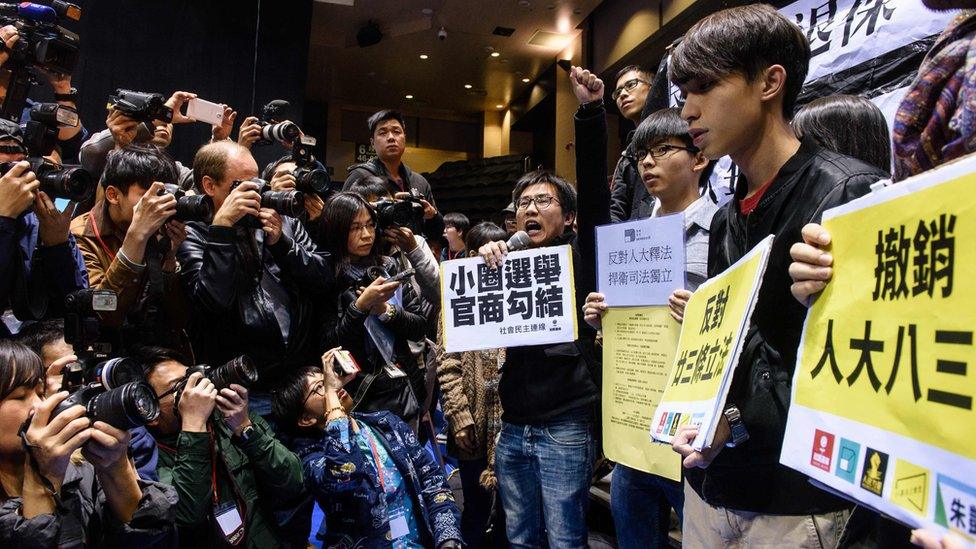
The choice of Mrs Lam will not be welcomed by the pro-democracy movement
Ahead of the election, Mrs Lam talked about bringing more young voices into the government, improving transparency and accelerating development.
"I am worried about the discontent that has emerged in our society," she said in January. "I know our younger generation is concerned about the lack of upward mobility and the cost of housing.
"I share the desires of many - that we must reignite Hong Kong's can-do spirit."
But addressing young people's concerns will require more than economic measures, and on restarting Hong Kong's stalled political reform process she has been noncommittal.
"The administration must consider whether the criteria and atmosphere are present," she said.
"Otherwise, we will draw Hong Kong into another series of divisions, and this is not favourable for the city's development."
Critics of Mrs Lam have nicknamed her "CY 2.0" - another version of the outgoing Mr Leung - and at the chief executive debate on 14 March, there was a telling exchange.
"Have you reflected on why people call you 'CY 2.0'?" Mr Tsang asked her. "We are worried that if you get elected, society will experience 'Divisiveness 2.0'."
His comments underline the challenge Mrs Lam is facing, balancing an intransigent Beijing with home-grown calls for full democracy that have not abated.
- Published7 January
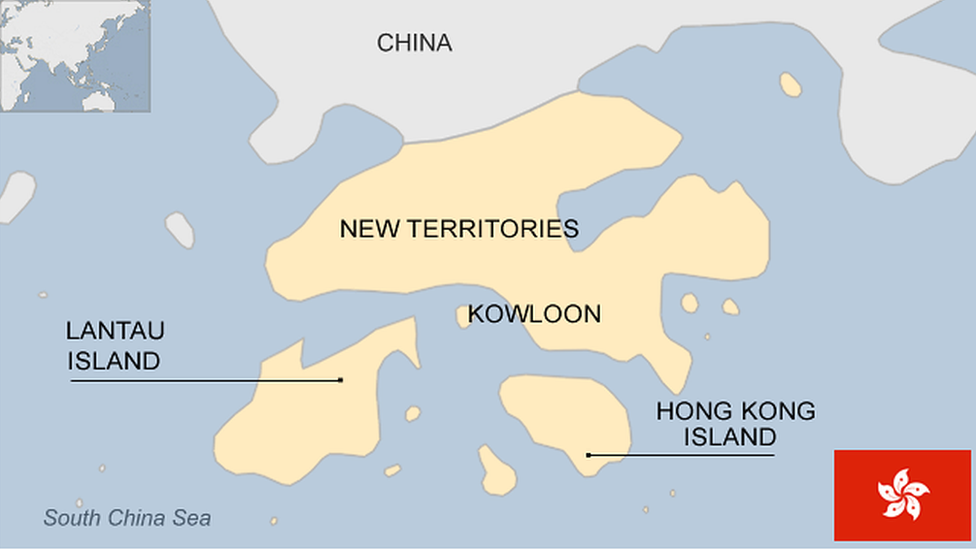
- Published25 March 2017
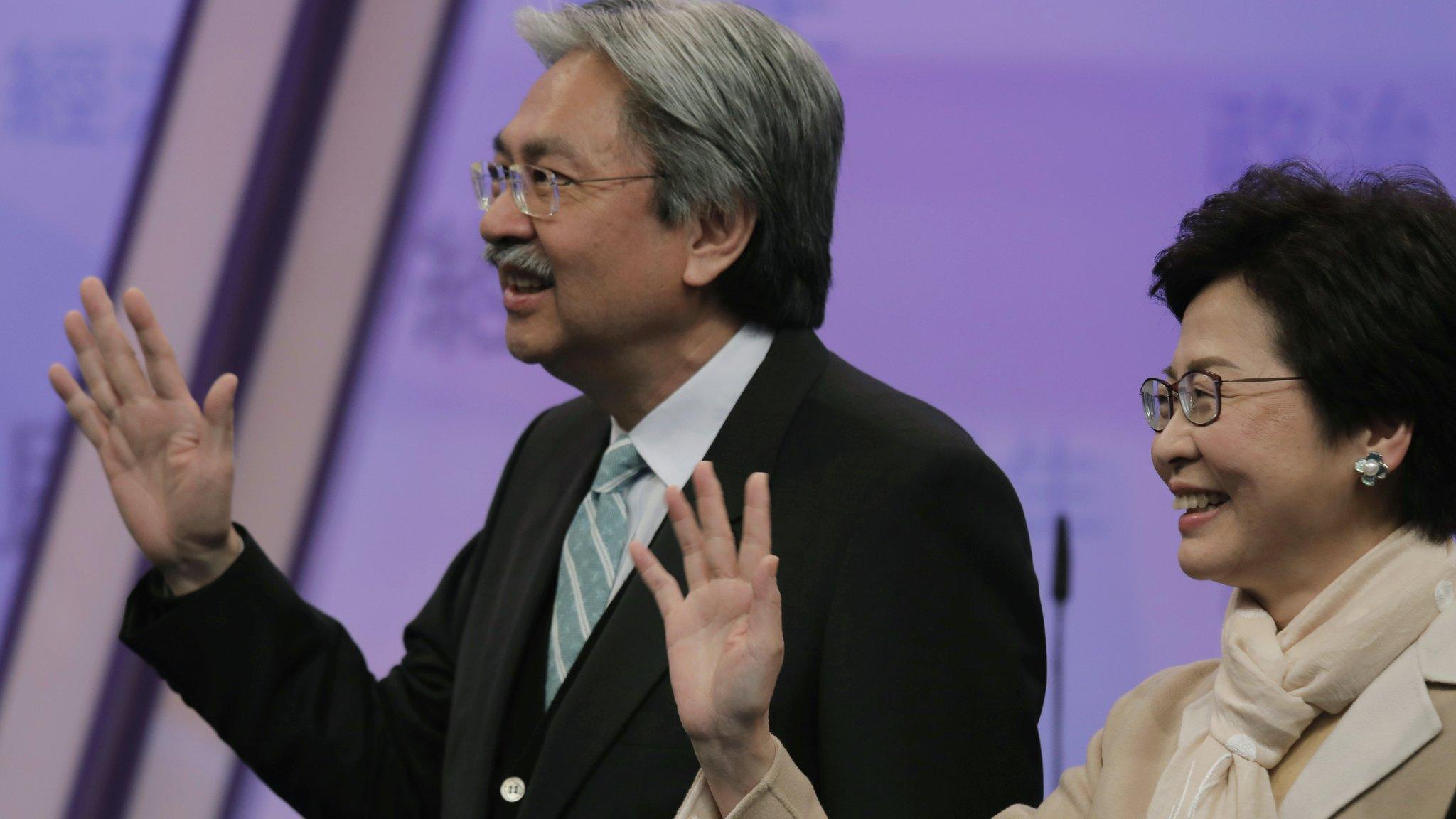
- Published9 December 2016
